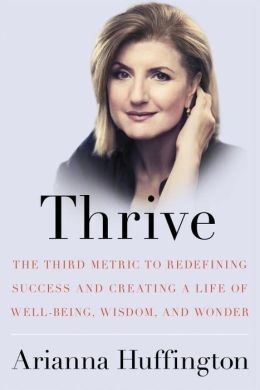More on this book
Community
Kindle Notes & Highlights
Thrive: The Third Metric to Redefining Success and Creating a Life of Well-Being, Wisdom, and Wonder
Read between
March 19 - April 11, 2025
Part of people feeling adrift and atomized, and finding themselves disconnected and in despair, has been the result of our culture’s costly error of conflating organized religion with our need to nourish our inner selves.
what we do with our time is what we do with our lives.
According to an American Cancer Society study, people with a sitting job are more likely to develop cardiovascular disease than those with standing jobs.
A purpose of life is to expand the boundaries of our love, to widen the circle of our concern, to open up rather than shut down, and to expand rather than contract.
Studies have also found that pet owners have lower blood pressure, a reduced risk of heart disease, and lower levels of stress.
“When making decisions about social relationships, it’s foolish to swap the amazing machine in your skull for the crude machine on your desk.”
The quest for knowledge may be pursued at higher speeds with smarter tools today, but wisdom is found no more readily than it was three thousand years ago in the court of King Solomon.
A study led by Lijing L. Yan at Northwestern University found that young adults exhibiting time urgency and impatience had a higher risk of developing hypertension.
Complex cognitive processing takes time, and, without some reasonable time for that processing, creativity is almost impossible.”
We try to shave a few seconds off our daily routine, in hopes that we can create enough space to schedule yet another meeting or appointment
We fear that if we don’t cram as much as possible into our day, we might miss out on something fabulous, important, special, or career advancing.
there are no rollover minutes in life. We don’t get to keep all that time we “save.”
“Small acts, simple emotions such as awe, and even counterintuitive measures like spending time doing tasks for someone else—essentially giving time away,” can make us feel more time affluent.
the more money you have, the more likely you are to suffer from time famine.
As long as success is defined by who works the longest hours, who goes the longest without a vacation, who sleeps the least, who responds to an email at midnight or five in the morning—in essence, who is suffering from the biggest time famine—we’re never going to be able to enjoy the benefits of time affluence.


